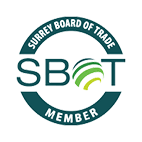Free trade agreements (FTAs) offer pathways to temporary work and business opportunities in Canada, and can help build eligibility for permanent residency. If you’re wondering whether these trade deals can benefit your immigration goals, the answer might surprise you.
Michael, an American Computer Systems Analyst from Seattle, secured a job in Vancouver within just 30 days. Michael applied under CUSMA Work Permit at the border and was able to begin working the same week. While most foreign workers spend months navigating complex and tedious immigration and Labour Market Impact Assessment processes, Michael leveraged the benefits of FTAs to expedite his entry.
This shows the power of Canada’s Free Trade Agreements (FTAs). These agreements make it easier and faster for skilled workers from partner countries to come and work in Canada, giving them an advantage over regular immigration routes.
What Are Free Trade Agreements (FTAs)?
Free Trade Agreements are comprehensive treaties between countries designed to eliminate barriers to trade and investment. While most people think of FTAs as being all about goods crossing borders duty-free, modern trade agreements go beyond that. They include provisions for:
- Work in Canada: Skilled professionals from partner countries can work temporarily in Canada.
- Investor Rights: Stronger protections for investors and entrepreneurs.
- Service Access: Easier for businesses to offer services across borders.
- Business Travel: Streamlined entry and procedures for short-term business activities.
Canada’s FTAs: Work, Business, and Residency Advantages
Canada’s Free Trade Agreements, like CUSMA, CETA, and CPTPP, aren’t just about goods and tariffs. They include temporary work provisions that offer major advantages for skilled professionals, entrepreneurs, and service providers.
CUSMA Work Permit remains one of the most widely used mobility pathways.
How Can You Use FTAs to Get to Canada?
Free Trade Agreements create several pathways that can significantly accelerate your journey to Canada, whether your goal is temporary work experience, permanent residence, or eventually Canadian citizenship.
No Labour Market Impact Assessment (LMIA) Required
Most FTA work permits are LMIA-exempt and issued under IRPR R204(a) LMIA exemptions, meaning Canadian employers don’t need to prove they couldn’t find a Canadian worker.
LMIA-Exempt Work Permits dramatically increases your chances of finding an employer willing to hire you.
Faster Processing Times
FTA applications typically process much faster than standard work permits. Some categories, like the temporary resident status for Americans, can even be approved at the border on the same day.
Renewable and Pathway-Friendly
Most FTA work permits are renewable and, crucially, the Canadian work experience you gain qualifies you for permanent residence programs like Express Entry and Provincial Nominee Programs.
For entrepreneurs, FTAs can also support business expansion and investment protection, while certain pathways may lead to permanent residency.
Canada’s Free Trade Agreements List 2025
As of September 2025, Canada has 15 free trade agreements covering 51 countries and more than 1.5 billion consumers. Some (like CUSFTA) are counted historically because they were once in force, but they were later absorbed or replaced by newer ones.
Note: Some agreements, such as CETA, are provisionally applied until full ratification.
Here is the list of currently active Canada’s Free Trade Agreements sorted by region:
North America
- Canada-United States-Mexico Agreement (CUSMA)
South & Central America / Caribbean
- Canada–Chile FTA (1997)
- Canada–Colombia FTA (2011)
- Canada–Costa Rica FTA (2002)
- Canada–Honduras FTA (2014)
- Canada–Panama FTA (2013)
- Canada–Peru FTA (2009)
Europe
- CETA – Canada–European Union Comprehensive Economic and Trade Agreement (2017, provisional)
- Canada–UK Trade Continuity Agreement (CUKTCA) (2021)
- Canada–EFTA FTA (2009) – with Iceland, Liechtenstein, Norway, Switzerland
- Canada–Ukraine FTA (CUFTA) (2017)
Middle East
- Canada–Israel FTA (CIFTA) (1997, modernized 2019)
- Canada–Jordan FTA (2012)
Asia–Pacific
- CPTPP – Comprehensive and Progressive Agreement for Trans-Pacific Partnership (2018) – includes Australia, Brunei, Chile, Japan, Malaysia, Mexico, New Zealand, Peru, Singapore, Vietnam, and Canada
- Canada–Korea FTA (CKFTA) (2015)
Key FTAs for Canada Immigration
1. CUSMA (Canada-United States-Mexico Agreement)
The Canada-United States-Mexico Agreement, which replaced NAFTA in 2020, remains one of the most widely used pathways for professional mobility to Canada. If you’re an American or Mexican citizen, CUSMA work permit offers robust options.
CUSMA covers three closely-integrated economies, providing streamlined processes and extensive opportunities for eligible professionals.
Key Professional Categories Covered:
- Engineers (all disciplines)
- Computer systems analysts and software engineers
- Accountants and financial advisors
- Lawyers (with provincial licensing)
- Teachers and professors
- Healthcare professionals
- Management consultants
- Architects and urban planners
CUSMA Professionals List: All Eligible Occupations
The TN Advantage: U.S. citizens may apply at ports of entry, where applications can sometimes be processed on the same day.
- No prior application required
- Same-day processing at border
- Lower fees than standard work permits
- Permits are renewable in three-year increments, provided applicants continue to meet eligibility requirements
- No annual cap or lottery system
Important: Approvals are not guaranteed at the border and permits are employer-specific.
Intra-Company Transfers:
- Executives and managers: Up to 7 years
- Specialized knowledge workers: Up to 5 years
- Streamlined application process
Mexican Citizens: Access the same professional categories as Americans but typically must apply in advance.
Business Opportunities: CUSMA also covers:
- Treaty traders
- Treaty investors
- Business visitors for meetings and consultations
Qualify under CUSMA, CETA, CPTPP or other FTAs?
We simplify your application and ensure full compliance.
2. Canada-EU CETA: European Pathway to Canada
CETA enhances mobility for European professionals seeking opportunities in Canada, benefiting from:
- Enhanced temporary entry for business visitors
- Streamlined intra-corporate transfers
- Specific provisions for independent professionals and consultants
- Mutual recognition agreements for certain regulated professions
CETA is a comprehensive partnership that covers 500 million EU consumers and enhances mobility for European professionals seeking opportunities in Canada.
Note: CETA is provisionally applied and not yet fully ratified.
Professional Mobility Under CETA Key Sectors
- Architects, engineers, urban planners (mutual recognition agreements)
- Banking and insurance professionals (enhanced market access)
- IT consultants and specialists (streamlined entry)
- Maritime professionals (special provisions)
- Management consultants, installation/maintenance technicians, trainers
Work Authorization Durations By Category
- Business visitors: Up to 90 days per entry
- Professionals: Typically 1–4 years, renewable
- Intra-corporate transfers: Up to 5 years depending on position
- Independent professionals: Project-based durations
Canada–UK Trade Continuity Agreement (CUKTCA)
The Canada-United Kingdom Trade Continuity Agreement ensures that UK citizens continue to benefit from enhanced trading relationships with Canada following Brexit.
Transitional nature: The Canada-UK TCA is transitional. A new bilateral FTA is under negotiation, which may lead to expanded opportunities for UK professionals.
UK citizens can access:
- Temporary entry for business visitors (up to 90 days)
- Professional services mobility
- Intra-corporate transfers
- Family accompaniment provisions for spouse and dependents
Future agreements may expand mobility for UK professionals.
Other Notable FTAs
CPTPP (Comprehensive and Progressive Trans-Pacific Partnership)
If you’re from Australia, New Zealand, Japan, Singapore, or other CPTPP countries, this agreement offers:
- Access to Canada’s fastest-growing trade relationships
- Professional mobility provisions
- Enhanced business visitor categories
- Strong investment protections
Canada-Korea FTA
Korean professionals can benefit from:
- Access to Canada’s 11th largest trading partner relationship
- Technology sector opportunities
- Professional services mobility
- Investment and business development support
Canada-Israel FTA
Israeli citizens, particularly those in technology and innovation sectors, can access:
- Enhanced professional mobility
- Strong investment protections
- Opportunities in Canada’s growing tech hubs
- Research and development partnerships
Important note: The Canadian government has proposed to introduce a new permanent economic class under the IRPA for TEER 4 and 5 workers. This is not fully in force yet in all respects.
Risks and Limitations
- Not all professional categories are covered by FTAs. Check eligibility carefully.
- Most FTA work permits are employer-specific; changing employers requires a new permit.
- FTA permits are subject to renewal requirements; approval is not automatic.
- CETA is provisionally in force, and the UK TCA is transitional, terms may change in future negotiations.
- Permanent residence is not automatic; applicants must meet all criteria under Express Entry or PNPs.
Strategic Pathways to Consider
- Direct Professional Entry: If you’re a qualified professional in one of the designated categories (engineers, accountants, consultants, etc.), you can often secure a job offer and work permit relatively quickly, then use your Canadian experience to apply for permanent residence.
- Intra-Company Transfer: If you work for a multinational company with Canadian operations, you might qualify for an intra-company transfer, allowing you to relocate to Canada with the same employer while building toward permanent residence.
- Business & Investment: Several FTAs include provisions for investors and business owners, allowing you to establish operations in Canada while working toward permanent status.
- Family Inclusion: If your spouse qualifies under an FTA, they can often bring you along, and you’ll typically receive an open work permit allowing you to work for any Canadian employer.
Take Professional Help from Licensed Consultants
Free Trade Agreements represent some of the most underutilized pathways to Canadian immigration success. As a citizen of an FTA partner country, you can access opportunities that many other foreign nationals cannot.
If you’re curious about which options best match your situation, why not take the next step?
Book a consultation with ELAAR Immigration to explore whether you qualify under Canada’s FTAs and receive a personalized strategy for your pathway. We’ll work with you to understand your background, clarify your possibilities, and help you map out the next stage of your Canadian future.
FAQs: Frequently Asked Questions About FTAs
Do I need to be a citizen of an FTA partner country to benefit?
In general, yes. FTA benefits require citizenship of a partner country, though some agreements may contain provisions for permanent residents or specific visa holders. Each agreement has different rules.
Can FTA work permits lead to permanent residence in Canada?
FTA work permits can provide valuable Canadian work experience that may strengthen your application for permanent residence. However, PR is not automatic and depends on meeting all criteria under Express Entry or Provincial Nominee Programs.
Can my family come with me?
In most cases, yes. Spouses typically qualify for an open work permit, and children can attend school at domestic rates.
Do I need a job offer before applying?
Most professional categories require a job offer from a Canadian employer. Intra-company transfers involve relocation with your current employer. Business visitors do not need a Canadian job offer, but must be employed outside Canada. Investors and traders must demonstrate substantial business activities.
How long does the application process take?
Border applications (such as TN status) may be processed on the same day. Online applications usually take 2–8 weeks; more complex categories may require 2–4 months.
What if I don’t qualify under any FTA?
There are many other pathways to Canada. FTAs are just one option. Express Entry, Provincial Nominee Programs, and other streams may be available.
Can I change employers while on an FTA work permit?
Most permits are employer-specific, meaning you’d need a new permit to change employers. The process is typically faster and easier than the initial application, but approval is not automatic.
Disclaimer: This article is for general information only and is not legal advice. Immigration policies change frequently; always verify with official IRCC or Global Affairs Canada sources, or consult a licensed RCIC.










